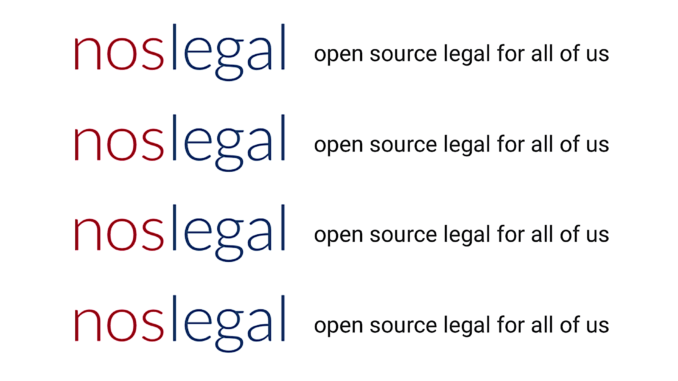
Noslegal, an open source taxonomy project that seeks to build a standardised categorisation system for the legal sector, has taken another step forward after securing support from Herbert Smith Freehills, Freshfields, and Osborne Clarke.
The goal of the UK-based project is to release legal taxonomy materials in early February 2022 that cover ‘legal places’ and ‘legal work’, and then it will expand into other areas.
Artificial Lawyer asked founder, Graeme Johnston, who is also the founder of Juralio, and who was previously a partner at Herbert Smith Freehills, what this will be used for, and especially, is this another SALI Alliance type of project?
‘Noslegal differs from SALI [in that] our strategy is based around building something which emphasises simplicity rather than detail, and is not tied to a particular legal system,’ he explained.
‘We started in August 2020 as an informal group of people whose work and organisations would benefit from better, but simple, ways to categorise legal work,’ Johnston added.
This site then asked if this would be useful in terms of helping law firms and clients to make the pricing of legal work more predictable and standardised?
‘Yes, pricing is one thing it can help with, by allowing work to be described more consistently and thus compared,’ he replied.
The project added that they are doing this because they believe that:
- ‘Better ways to articulate legal work (and law-related things more generally) can help many people in many ways;
- historically, the tendency of such projects has been to go deep into the technicalities of special legal regimes;
- we believe there is practical benefit in going wider rather than deeper, and in making a greater effort to join up legal stuff with the rest of the world;
- we also believe that this is best done as a collaborative, open project rather than as a proprietary one.’
More broadly the idea is that the project will steadily expand as more people get involved, building out the taxonomy to describe a growing range of subject areas. However, they plan to avoid the following:
- ‘Legal conceptual distinctions of the types found in textbooks and legal research databases – there are plenty of those and our focus is different
- classifications of local or sectoral interest – though we’re happy to coordinate with groups interested in doing so
- time recording codes and related topics within the US LEDES / UTBMS schemes and their English litigation offshoot’.
‘Our work is intended to provide a high level framework,’ the project stated.
In terms of a taxonomy that connects to ‘legal places’, this could cover things such as:
- Governing law in a contract
- Applicability of a given legal regime – which may be national, sub-national or international in origin
- Dispute resolution forum (e.g. court, place of arbitration)
- Location of assets
- Personal links of legal relevance (e.g. domicile, residence, place of incorporation / registration or similar)
- Location of authorities involved (e.g. in an investigation or regulatory approval)
- Categorising matter records and knowledge by the above dimensions
Overall it’s a welcome move that may help law firms and clients to operate using the same terms and that has to be a good thing. It may also improve contracting, and help – perhaps in the long-term – with standardising pricing.
Noslegal is also looking for other people to join the project, whether at law firms or elsewhere across the industry. Drop Graeme Johnston a line via LinkedIn if you are interested in taking part.
—
Other organisations with people actively involved include:
Legal services providers: Allen & Overy, Ashurst, Clifford Chance, Factor Law, Linklaters, Macfarlanes, Pinsent Masons, Shearman & Sterling and Slaughter and May.
Technology companies: Della AI, Genie AI, iManage, Kormoon and Majoto.